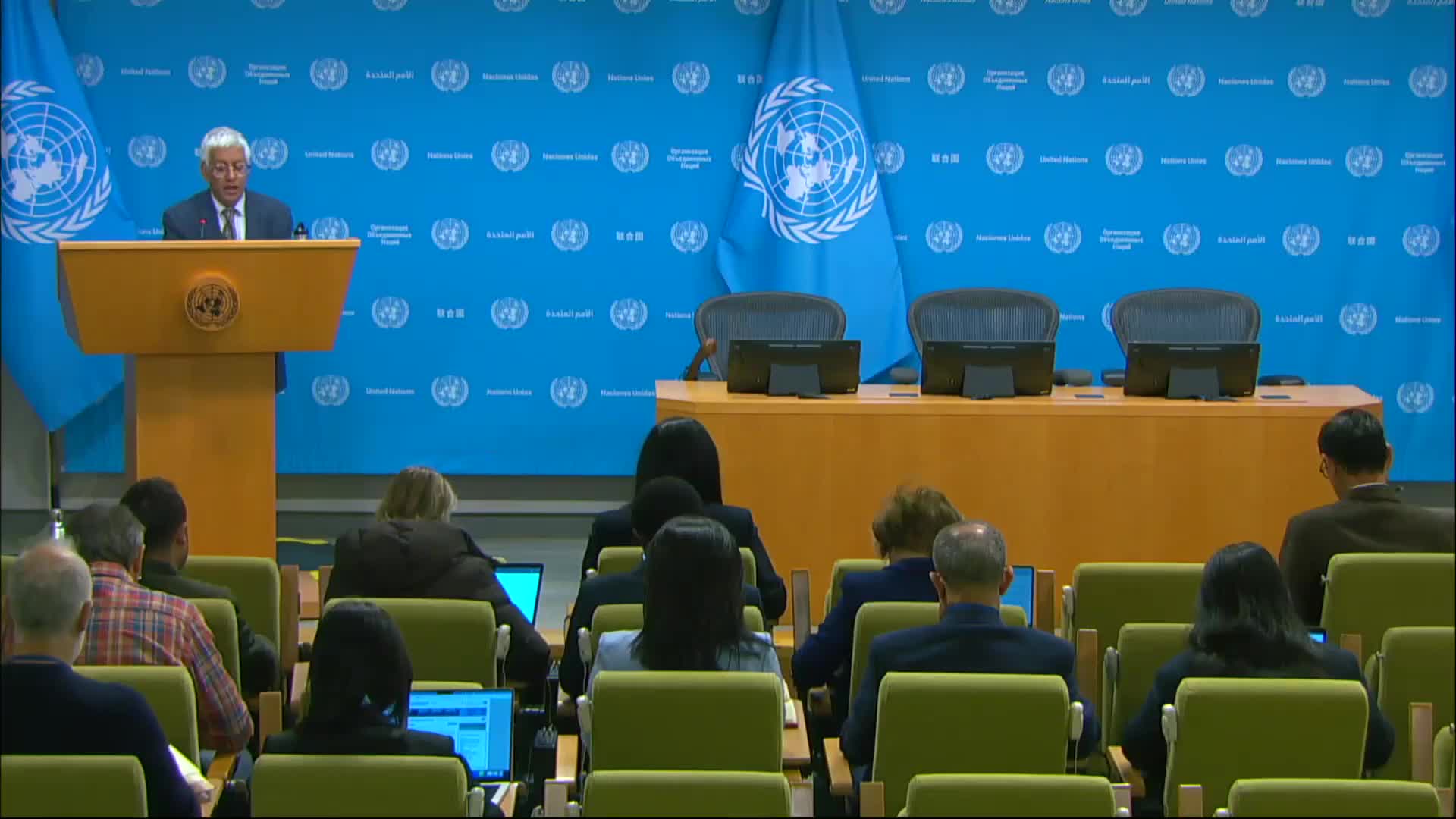U.N. says aid deliveries to Gaza rising but access gaps leave many without sufficient food
Get AI-powered insights, summaries, and transcripts
Subscribe
Summary
U.N. spokesperson Farhan said the U.N. and partners had collected large consignments of humanitarian supplies for the Gaza Strip but stressed that distribution and access challenges mean many people still do not receive enough food and basic items.
U.N. spokesperson Farhan said the U.N. and partners had collected large consignments of humanitarian supplies for the Gaza Strip but stressed that distribution and access challenges mean many people still do not receive enough food and basic items.
The U.N. reported that nearly 200 truckloads of essential supplies were collected from Israeli crossings along the perimeter fence encircling Gaza and listed the types of cargo: about 1,900 metric tons of assorted food and wheat flour; roughly 100 pallets of food boxes; more than 1,000 pallets of mattresses, blankets, tents, tarpaulins and winter clothing; nearly 300 pallets of hygiene kits and water containers; 50 pallets of fortified cereals; and about 200 pallets of dignity, menstrual-health and midwife resupply kits. The spokesperson cautioned that the figures are preliminary and do not include bilateral or commercial donations.
Farhan said the U.N. and partners are supporting 17 bakeries (nine in the south and eight in the north) producing some 150,000 bread bundles daily, distributed through more than 400 points across the Gaza Strip, and about 180 kitchens providing nearly 1,160,000 meals a day. The U.N. is also supporting 133 nutrition-treatment sites, including 20 in Gaza City, and has delivered tarpaulins, blankets and medical supplies to health facilities. "We believe that on a day-to-day basis, we're reaching more places. And so, the access to food is improving gradually, but we need to get aid to all the people who need it," Farhan said.
A U.N. Satellite Center assessment cited by the spokesperson found that roughly 81% of structures in the Gaza Strip are damaged; the briefing said more than 123,000 structures have been identified as destroyed, about 15,000 as severely or moderately damaged, and some 24,000 as possibly damaged, for nearly 200,000 affected structures in total. The U.N. noted that northern Gaza experienced the largest increases in damage since July, with nearly 5,700 newly affected structures.
The U.N. outlined logistical and access hurdles officials say are limiting full distribution: not all crossings or distribution points are operating; road conditions and surrounding destruction make some areas effectively inaccessible; and international NGOs and personnel sometimes require visas and authorizations to operate in Gaza. The U.N. said opening additional crossings, ensuring distribution points function and granting necessary access to humanitarian staff are among the steps needed to reach all communities.
The spokesperson also reiterated calls for accountability in the broader political context, saying the secretary-general has emphasized the need for a political horizon toward a negotiated two-state solution. Ending the briefing, Farhan underscored that the reported operational figures are preliminary and that fuller data will continue to be collected and verified.
